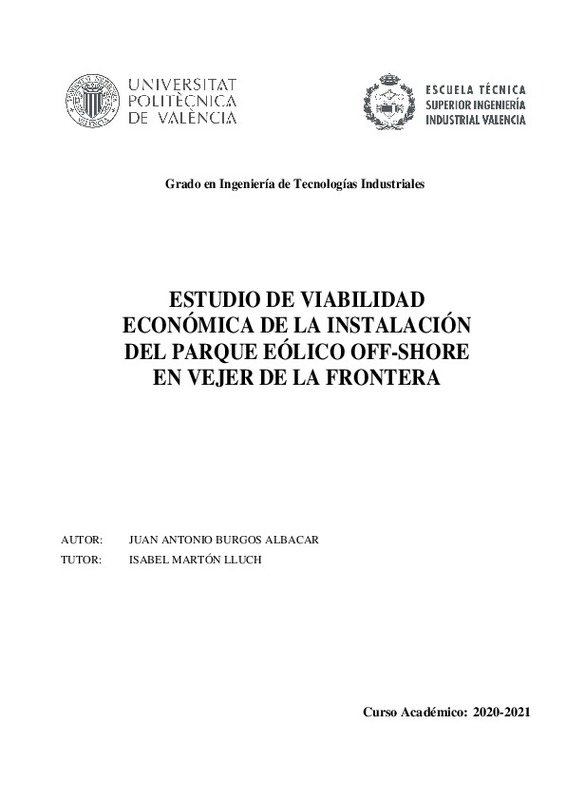|
Resumen:
|
[ES] En vistas a cumplir el Acuerdo de Paris para la transición energética, en los próximos años se debe reducir las emisiones de gases de efecto invernadero en, al menos, un 40% para 2030 en comparación con los datos ...[+]
[ES] En vistas a cumplir el Acuerdo de Paris para la transición energética, en los próximos años se debe reducir las emisiones de gases de efecto invernadero en, al menos, un 40% para 2030 en comparación con los datos obtenidos en 1990. Para ello, se debe reducir el consumo de combustibles fósiles en la generación de energía eléctrica. Una consecuencia directa de este acuerdo es impulsar el desarrollo de las llamadas energías renovables, las tecnologías implicadas en estas y su instalación masiva en los países adscritos al Acuerdo de Paris. En el territorio español, actualmente, el 24,2% de la potencia eléctrica instalada corresponde a la energía eólica. Toda esta energía se genera a partir del recurso eólico que se obtiene en instalaciones terrestres. Lo que significa que el recurso eólico marino continúa sin ser explotado en el territorio peninsular.
En este contexto, el presente TFG tiene como objetivo el estudio de viabilidad de un parque eólico situado en la costa española, concretamente en Vejer de la Frontera. En este estudio se seleccionará una localización óptima según diferentes parámetros como la batimetría, la densidad de recurso eólico, la proximidad a la costa y a rutas marítimas. A continuación, se estudiará la viabilidad económica de la instalación, y el periodo de retorno de la inversión a partir de un modelo matemático que prediga el deterioro de los aerogeneradores instalados.
[-]
[EN] Looking forward to meeting the objectives planned in the Treaty of Paris for the energetic transition, in the coming years the countries subject to this treaty must reduce their emissions of greenhouse effect gases ...[+]
[EN] Looking forward to meeting the objectives planned in the Treaty of Paris for the energetic transition, in the coming years the countries subject to this treaty must reduce their emissions of greenhouse effect gases in, at least, a 40% by 2030 in comparison to the data collected in 1990. In order to do so, countries must reduce their consumption of fossil fuels in electric generation. One of the main consequences of this treaty is to boost the development of the so called renewable energies, the technologies implied in these and the generalized installation of these in the countries that are subject to the Treaty of Paris.
Nowadays, in the Spanish territory, only the 24,2% of the energy output comes from wind energy. The whole of this energy comes from terrestrial wind farms. This implies that the oceanic wind source remains unexploited.
In this context, this TFG¿s main objective is the viability study of an offshore wind farm located in the Spanish shore, near the town of Vejer de la Frontera. In this study, a location will be selected accounting for different parameters such as bathymetry, density of wind source, proximity to shore and maritim routes. Finally, the economic viability and the return on investment period of this project will be evaluated following a mathematical model that predicts the effect of ageing in the turbines that will be installed.
[-]
|







